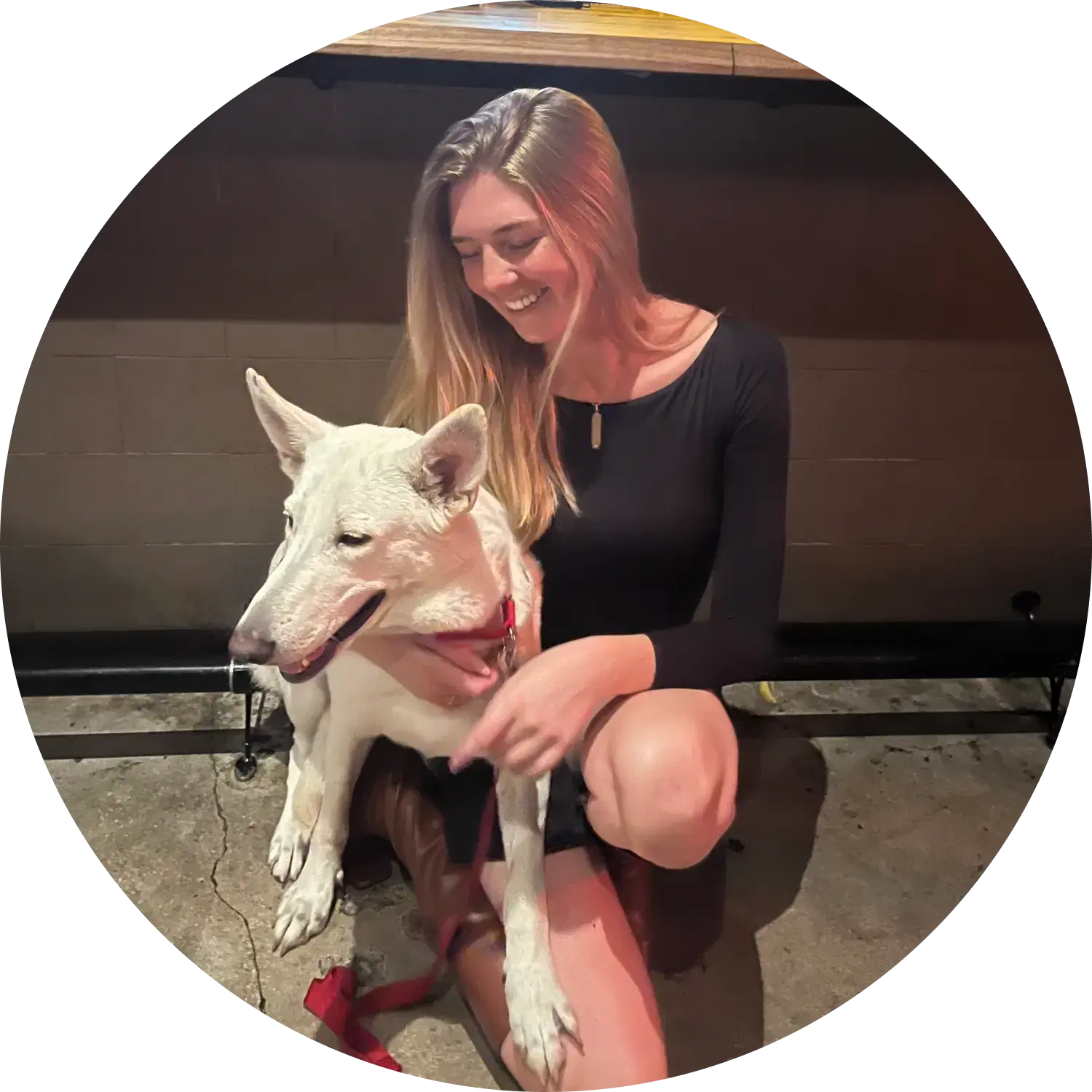If you search online for the nutritional benefits of barley, you might come away thinking it’s the only food your dog should eat. But there’s more to consider than just the nutrient list when it comes to your dog’s diet.
Barley is a grain, so it helps to start with the bigger picture of how grains fit into canine nutrition. While grains aren’t essential, they can serve as a valuable source of carbohydrates and vitamins that support energy. However, they aren’t a natural part of a dog’s ancestral diet. Some dogs may also develop allergies to grains or to the gluten they contain. And when consumed in excess, certain grains can contribute to health issues like obesity, diabetes, or skin conditions.
So where does barley stand?
The good news is that barley isn’t one of the “bad” grains. In fact, it’s commonly used in animal feed, including dog kibble, where it often appears right after the main meat protein source. Some pet parents even add barley grass powder to their dog’s meals to support digestion. Whole-grain barley is particularly valued for its high soluble fiber content (1).
This fiber not only promotes healthy digestion but can also help regulate blood sugar, lower cholesterol, and reduce the risk of heart disease. It may even ease constipation. Along with fiber, barley also offers dogs a good supply of carbohydrates, plant-based proteins, manganese, and vitamin B.
Should You Add Barely to Your Dog's Meals?
The answer is no. While barley is safe for dogs to eat, it is not gluten-free. So, it does pose a risk to the dogs that have gluten allergies. Secondly, a dog’s digestive system is not equipped to digest a lot of fiber all at once, especially if it comes from a non-meat source. Eating a lot of it can cause several digestive and other health-related issues for your dog. (1)
Is Barley Better for Dogs Than Rice?
This completely depends on your dog. The main deciding factor is gluten here. If your dog is allergic to gluten, then rice is always the better option. But if that’s not the case, then barley takes over because of the high fiber content.
To add to barley’s case, there are several other points. Glycemic index, for example, is lower in barley than rice, making barley better for obese or diabetic dogs. The high amounts of soluble fibers in it can help lower LDL cholesterol and prevent the body from reabsorbing it into the bloodstream.
This doesn’t mean that rice is bad for dogs. It can be a good option to consider if you’re trying to create a bland diet for your dog. It can become a good source of easily digestible carbohydrates that can help provide energy over a long period of time to your dog. The high glycemic index in rice takes the winning title away, though. Brown rice may be a better alternative.
How Much Barley Can I Give My Dog?
The key is in moderation when it comes to offering any plant-based or grain-based diet to your dog. Barley should not form more than 10% of your dog’s daily diet. This means that if your dog eats two cups of food per day, barley should be limited to not more than 3-4 tablespoons per day.
Be very careful with the quantities here. Too much barley served regularly can cause inflammation of the pancreas. Pancreatitis, the disease caused by inflammation of the pancreas, can be a severe one in dogs.
What Grains Should Dogs Avoid?
There is a long-standing debate about grains and their addition to a dog’s diet. Firstly, dogs do not necessarily need grains in their diet. The soluble carbohydrates found in them can easily be substituted by muscle glycogen found in meat.(4) Having said that, grains, in general, are not harmful to your dog unless the dog is allergic to anything in particular. (3)
Wheat is one of the top five allergy-provoking ingredients for dogs.(4) Other grains like rye that contain gluten should also be avoided for allergic dogs. Apart from allergens, genetically modified grains like corn should also be avoided. (3)
What Grains Cause Inflammation in Dogs?
Most grains come with high fiber content and, hence, pose a threat of inflammation in dogs if eaten disproportionately. Apart from grains, additives, preservatives, and low-quality ingredients can also trigger inflammation.
Some grains, like rice and millet, are less likely to cause inflammation because they don't contain gluten. Ancient grains like amaranth and quinoa are also thought to be less inflammatory for dogs. The key again is in moderation here.
More about Spot Pet Insurance
Having a dog is great, but there will be times when your canine ends up feasting on things they are not supposed to. You may also unknowingly feed them foods that can cause digestive upset and other problems for them. Too much barley, for example, can not only cause digestive issues but also allergic reactions, weight gain and pancreatic inflammation.
Some illnesses may be minor, but others might be severe and may even surgery. At such a time, worrying about your pet would be more important than worrying about all the medical bills. This is where pet health insurance helps. You can save up to 90% of all expenses and much more.
Spot accident and illness plans can be used with any licensed vet in Canada or the U.S. Whether you are home, or traveling to the U.S., veterinary services your pet receives for the diagnosis, treatment, or management of covered conditions can be eligible for reimbursement. Spot’s accident and illness plans can help cover a variety of conditions including broken bones, lacerations, aggression, kidney disease, diabetes, and more. With the addition of Wellness Riders for an extra cost, you can also receive reimbursements for wellness exams, certain vaccinations, dental cleanings, and more.
Learn more about dog insurance or get a free quote!

The resident animal enthusiast at Spot. I have a lifetime of pet parent experience. If it has fur, feathers, or scales, I’ve probably shared my home with it. I aim to be a reliable source, blending experience with a dedication to the well-being of pets.
MasterClass. (n.d.). Can dogs eat barley? How to feed your Dog Barley - 2024 - MasterClass. https://www.masterclass.com/articles/can-dogs-eat-barleyRaw, W. F. (2023, September 4). Unpacking the controversy: Are grains bad for dogs? We Feed Raw. https://wefeedraw.com/blog/the-great-grain-debate-do-dogs-need-grains
Richard Rowlands, Pet Health Expert. (2021, March 22). How to Choose a Dog Food with Grain. Only Natural Pet. https://www.onlynaturalpet.com/blogs/holistic-healthcare-library/how-to-choose-a-dog-food-with-grain?srsltid=AfmBOoqXEFUywZ1Ta5p6WzuBHeYi563Hs3Ha8xjfSpk3iuPjFQwQXzCD
Coile, C., PhD. (2023, February 23). Can dogs eat wheat and other grains? American Kennel Club. https://www.akc.org/expert-advice/nutrition/can-dogs-eat-wheat/












